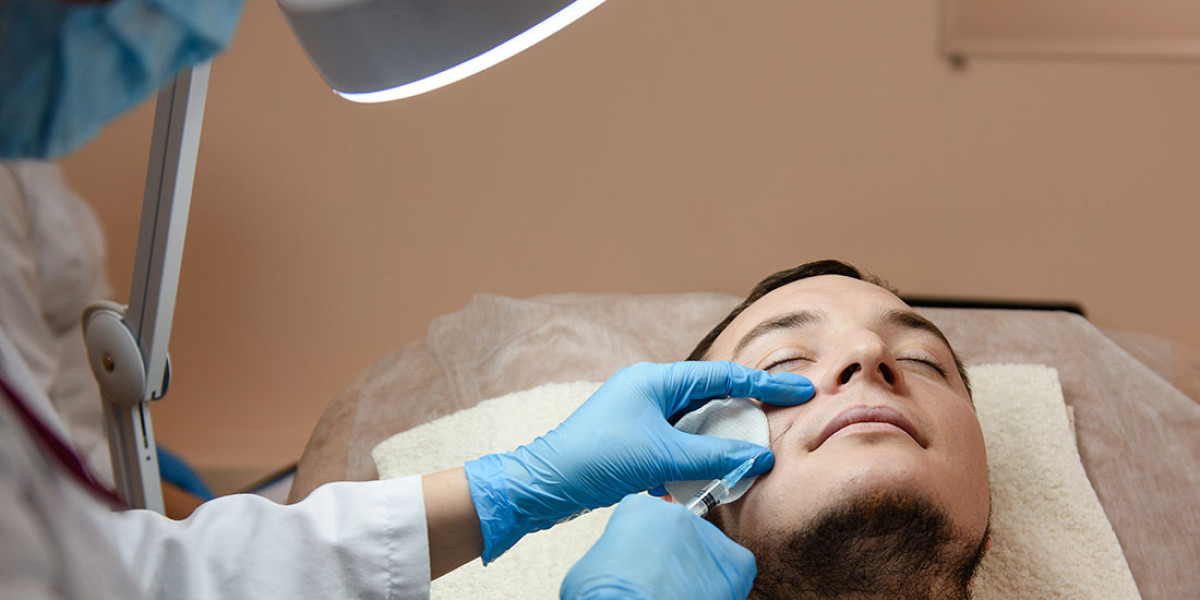In recent years, dermatology in Dubai has increasingly recognized the profound impact of nutrition on skin health. As the city continues to position itself as a global leader in advanced skincare treatments, dermatology professionals have started emphasizing the connection between what we eat and how our skin looks and feels. Nutrients from food play a vital role in supporting the skin’s structure, function, and appearance, with certain vitamins, minerals, and fats contributing to healthier, more vibrant skin.
Dubai's dermatology (طب الجلدية ) experts have observed that a balanced diet can significantly improve the skin’s ability to repair itself, maintain its elasticity, and ward off common conditions such as acne, eczema, and premature aging. While many patients seek treatments like laser therapy and facials to address skin issues, nutrition is now viewed as an essential element in a comprehensive skincare approach. By understanding how specific foods influence the skin, individuals can enhance the results of dermatological treatments and enjoy long-lasting benefits for their skin health.
Key Nutrients for Skin Health:
Certain nutrients are known to play a crucial role in maintaining optimal skin health, and dermatology in Dubai often incorporates dietary advice alongside clinical treatments. For example, antioxidants like vitamins C and E help protect the skin from damage caused by free radicals, which can lead to premature aging and wrinkles. These vitamins are commonly found in fruits such as oranges, strawberries, and kiwi, as well as in leafy greens and nuts. Including these foods in one’s diet can support the skin’s ability to repair itself and stay youthful.
In addition to antioxidants, healthy fats are essential for maintaining the skin’s natural barrier. Omega-3 fatty acids, found in foods like salmon, flaxseeds, and walnuts, help keep the skin hydrated and reduce inflammation. These fats contribute to the skin’s ability to lock in moisture, preventing dryness and irritation. Omega-3s are also known to have anti-inflammatory properties that can be beneficial for those dealing with skin conditions such as acne or psoriasis.
Hydration and Skin Health:
One of the most fundamental factors in achieving healthy, glowing skin is proper hydration, and dermatology in Dubai emphasizes the importance of drinking enough water daily. The skin, being the body’s largest organ, is greatly affected by hydration levels. When the body is dehydrated, the skin can become dry, flaky, and more prone to wrinkles. Consuming a water-rich diet, including fruits and vegetables like cucumbers, watermelon, and celery, can support skin hydration and help maintain its plump, youthful appearance.
Hydration is also important for maintaining the skin's elasticity and firmness. Proper moisture levels can reduce the appearance of fine lines and make the skin appear smoother. Therefore, dermatology professionals in Dubai encourage patients to not only stay hydrated through water consumption but also incorporate hydrating foods into their daily meals to support the skin’s health from the inside out.
Gut Health and Its Impact on Skin:
In addition to focusing on specific nutrients, dermatology in Dubai has also recognized the importance of gut health in skin health. The gut-skin connection has become a major area of interest in recent years, with research showing that an imbalance in the gut microbiome can contribute to skin conditions like acne, eczema, and rosacea. By promoting a healthy gut with a diet rich in probiotics and prebiotics, individuals can help reduce inflammation and improve their skin’s overall appearance.
Fermented foods such as yogurt, kimchi, and sauerkraut, as well as fiber-rich foods like whole grains, fruits, and vegetables, can support gut health and, in turn, positively impact the skin. Dermatology professionals in Dubai encourage patients to focus on nourishing both their gut and their skin for a holistic approach to skincare, addressing the root causes of many common skin issues.
Foods to Avoid for Clear Skin:
While certain foods can boost skin health, others may exacerbate skin problems. Dermatology in Dubai often advises patients to avoid or limit processed foods, sugary snacks, and dairy products, as these can contribute to breakouts and inflammation. High glycemic index foods, such as white bread and sugary cereals, can spike insulin levels and trigger acne flare-ups by increasing inflammation and oil production in the skin. Reducing the intake of these foods can help individuals achieve clearer, healthier skin.
Additionally, excessive consumption of dairy has been linked to acne in some individuals, particularly those with sensitive skin. By opting for plant-based alternatives or reducing dairy intake, some people can see significant improvements in their skin's clarity and texture. Dermatology professionals in Dubai recommend a well-rounded approach to skincare that includes both beneficial nutrients and the avoidance of skin-aggravating foods.
A Holistic Approach to Skin Health:
Dermatology in Dubai is increasingly adopting a holistic approach to skincare, where nutrition and lifestyle factors are considered alongside topical treatments and advanced procedures. With a strong emphasis on preventive care, patients are encouraged to integrate healthy eating habits, adequate hydration, and regular physical activity into their skincare routines. This comprehensive approach helps individuals achieve radiant skin while preventing future skin issues.
By focusing on nutrition, dermatology in Dubai empowers patients to take charge of their skin health in a natural, sustainable way. Whether seeking treatments for specific skin concerns or looking to maintain a youthful glow, a balanced diet, rich in essential nutrients and hydration, plays a crucial role in enhancing the effectiveness of dermatological treatments and achieving long-term skin health.
The Role of Dermatology in Nutritional Guidance:
As nutrition becomes an increasingly important factor in skin health, dermatology professionals in Dubai are providing more guidance on dietary choices to complement their clinical treatments. Through consultations and personalized advice, patients can learn how to improve their diet to support their skin goals. This personalized approach ensures that individuals are not only receiving the best dermatological treatments but also making informed decisions about the foods they consume to maximize their skin’s health and appearance.
As the connection between nutrition and skin health becomes more evident, dermatology (طب الجلدية ) continues to evolve, offering patients a holistic, well-rounded approach to achieving and maintaining healthy, beautiful skin. By addressing both internal and external factors, dermatology professionals help patients optimize their skin care for lasting results.









